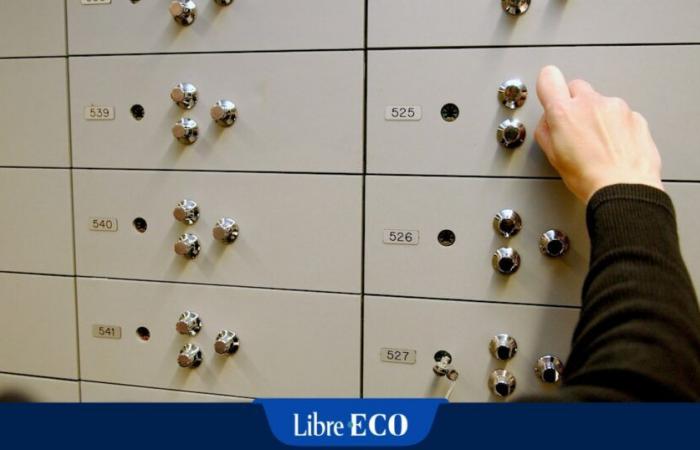gull“The bank does not have a key and has no knowledge of the contents of their customers’ safes.”
After a “internal investigation”, the bank employee called this lady back, telling her that no “irregularity had not been identified”. Samira therefore filed a complaint with the Londerzeel police. The bank branch contacted her immediately, assuring that her complaint was unfounded, describing this case as “unexplained disappearance and claiming to take no responsibility. Supported by a lawyer, this aggrieved client decided to file a civil complaint with the investigating judge.
“Prove that there was a loss”
The case of this Flemish woman is not isolated. In all, The Latest News recorded no less than nine similar testimonies, all linked to branches of BNP Paribas Fortis around Brussels. The victims together lost nearly 600,000 euros in money and jewelry.
This Revolut customer had nearly 200,000 euros stolen: “The bank’s security measures are not sufficient”
Although the number of Belgians who own a safe of this type is not known, it is nevertheless useful to point out that banks each have their own rules and policies regarding the rental of private safes. “The rules contained in the rental contract are established freely by each banking institution”, says Charline Gorez, spokesperson for the Belgian Financial Sector Federation (Febelfin). She adds that in the event of disappearance without proof of theft, it is difficult to be covered by insurance. “Since only the customer knows the contents of his safe, he must prove that there has been a loss. Insurance can only come into play if the customer can establish that a theft has occurred.she says. The anonymized customer Samira confirmed this hypothesis, ensuring that BNP had asked her to prove the contents of her safe.
“When signing the safe rental contract, the customer receives a key and defines the secret code for opening the safe,” describes Valéry Halloy, spokesperson for BNP. Before adding that he “It is strictly forbidden to make a duplicate of this key”. Only the customer or the agent of the safe therefore in principle has access to the latter. While “access to the safe room is only authorized on presentation of the access card and identity card”, and the client must sign a register at each visit. “The bank has no key and has no knowledge of the contents of their customers’ safes. add Valéry Halloy.
Why large French groups are buying Belgian private banks: “This situation is an anomaly on an international scale”
“A bank employee plays locksmith”
Who could have stolen the contents of this safe, supposedly “protect your valuable assets, securely and confidentially”as the bank boasts on its website. For Samira’s lawyer, Mr. Talloen, it is clear: “A bank employee plays locksmith”. According to him, it would therefore be a member of staff who opened the safe incognito to steal the contents.
“The three-letter code is easy for a locksmith to bypass and with the right tools, it’s easy to open a safe without leaving a trace”analyzes lawyer Talloen, for whom a bank employee could very well have stolen the contents of the safe without leaving a trace. BNP Paribas Fortis, for its part and through its spokesperson, says it does not want to comment on this specific matter.






